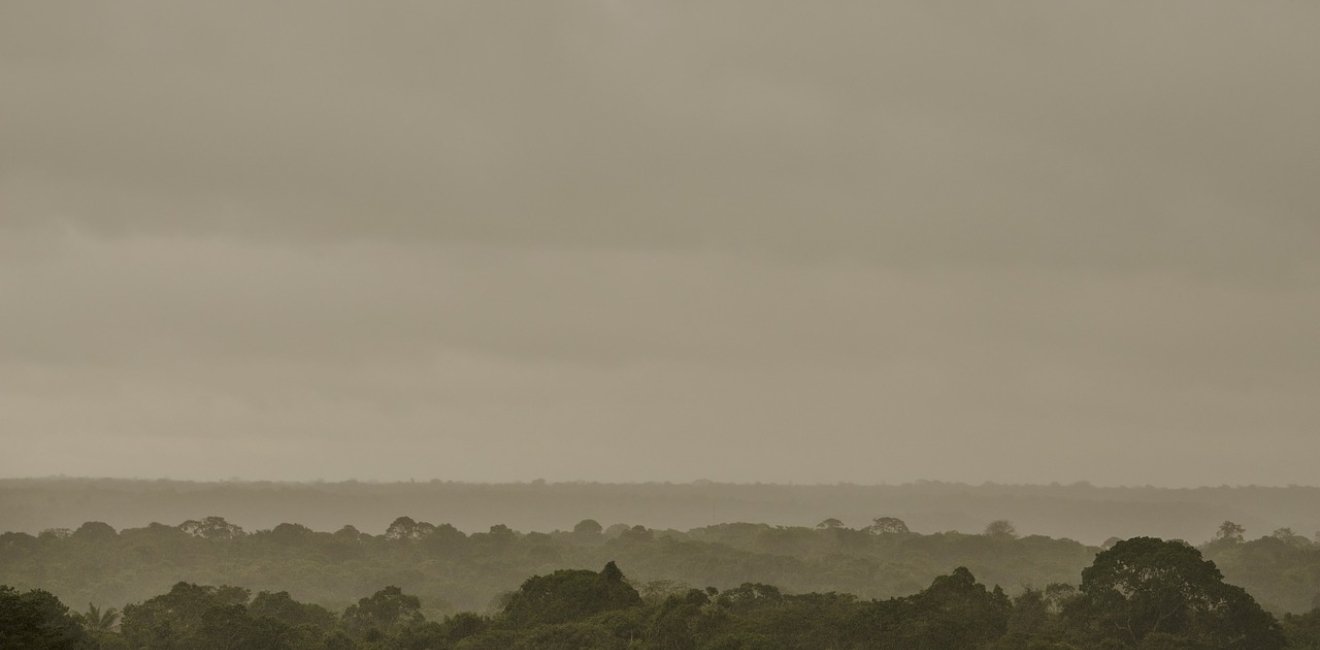
A blog of the Brazil Institute
The boom in forest fires linked to deforestation earlier this year raised concerns worldwide, and in the aftermath, the Amazon’s environmental contribution to our planet has been widely debated. Many world leaders expressed their worry, repeating the overused (and incorrect) maxim that the Amazon forest is “the lungs of the world” and that it produces 20 percent of the oxygen found on Earth.
Members of the Jair Bolsonaro government, however, went in the opposite direction. Addressing deforestation figures, the Head of Institutional Security, General Augusto Heleno, declared that statistics on the disappearing Amazon were “manipulated.” General Heleno also incorrectly stated that “if you added up all the percentages they have announced until today on deforestation, the Amazon would already be a desert.”
What would actually happen if the Amazon Rainforest simply disappeared? A pair of scientists from Princeton University recently modeled the effects of deforesting the entire Amazon over the next 30 years and replacing it with pasture. And although the world would not exactly be losing its “lungs,” their results suggest the planet would be in very bad shape indeed.
Researchers Elena Shevliakova and Stephen Pacala found that even if the rest of the world is able to cut its carbon emissions, turning the Amazon into pasture would cause average global temperatures rise 0.25°C above the expected increase, which would challenge efforts to limit average warming to the current Paris Agreement target of 1.5°C.
The Amazon region itself—the seven million square kilometer basin stretching over nine Brazilian states and eight other sovereign countries—would become virtually uninhabitable, according to the model. Rainfall would be 25 percent lower and temperatures up to 4.5°C hotter. “It's a bad story any way you look at it,” said Dr. Shevliakova.
Dr. Pacala highlighted the four major concerns facing the planet right now: climate, food, water, and biodiversity. “And the Amazon is at the center of all of them,” he said. The region has a major impact on the Earth’s water cycle and carbon balance.
Impacts on the United States
Although South America would feel a quick and deafening blow from changing climate patterns in the Amazon, the effects of such a change on the western hemisphere more broadly have yet to be fully explored. A 2013 paper by a quartet of researchers from Princeton and the University of Miami explored precisely how a deforested Amazon would directly impact conditions in the United States and other non-tropical regions.
Lead author David Medvigy and his co-authors found that a deforested Amazon would lead to decreased rainfall in crucial areas of the mainland United States, such as the northwestern coast and the Sierra Nevada snowpack—which provides a huge source of water for California farms and cities.
These findings are based on the likelihood of a depleted Amazon creating a weather pattern similar to that of El Niño, a hypothesis followed by researchers in studies on the topic for decades. The idea in Dr. Medvigy's paper is that a hotter Amazon will create an abnormal pattern of dry air moving with the wetter and cooler air from the south. This cycle would then increase rainfall around the Gulf of Mexico, yet dry out the United States’ northwest region. As the Sierra Nevada snowpack is crucial to California’s Central Valley, such a transition could have a huge impact on food security in the United States.
Food Security in Brazil
Back in Brazil, alarm bells are ringing with regard to the effects climate change may have on the production of food across the country. A Central Bank study showed just how much food prices have been affected by climate conditions so far in 2019, and the situation is set to get worse over time, as Natalia Scalzaretto reported back in July.
Like the content? Subscribe to the Brazilian Report using the discount code BI-TBR19 to get 20 percent off any annual plan.
Author

Brazil Institute
The Brazil Institute—the only country-specific policy institution focused on Brazil in Washington—aims to deepen understanding of Brazil’s complex landscape and strengthen relations between Brazilian and US institutions across all sectors. Read more

Explore More in Brazil Builds
Browse Brazil Builds
They're Still Here: Brazil's unfinished reckoning with military impunity




